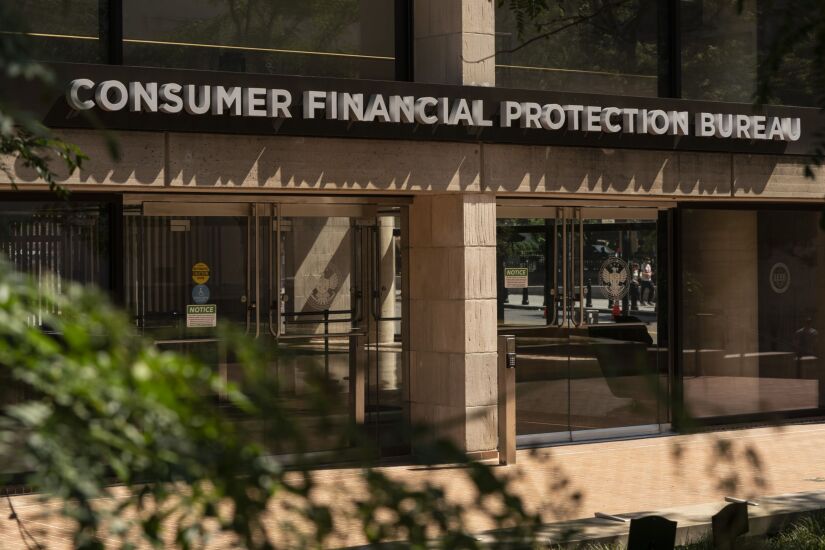In June's roundup of top tech news: U.S. Bank partnered with Greenlight to provide financial education resources, ransomware group LockBit released data belonging to Evolve Bank & Trust, banks consider the merits of open-source and closed-source generative AI and more.

U.S. Bank announces partnership with Greenlight to provide family app
Consumers with the $684 billion-asset bank that have eligible U.S. Bank checking accounts can gain free access to Greenlight's platform and linked debit cards for children and teenagers up to 17 years old. The collaboration is the latest product tied to the launch of the institution's
"Families were looking for a better way to raise financially smart kids [and] we found that age-appropriate financial literacy, paired with a debit card to put the skills into practice, is a powerful way to meet that need," said Jennifer Miller, head of strategic alliances and campus banking at U.S. Bank. "Greenlight has revolutionized how parents teach their kids and teens about money, and we wanted to bring that to our customers in a simple and seamless experience."

What are the tech solutions to Zelle fraud and scam resolution?
Some of this will take human effort — for instance, better training of human fraud investigators and customer service reps. But technology that detects, flags and reports on fraud and generative AI that gathers customer and account history data could help humans investigate and handle customer fraud claims more smoothly.
Banks have long used traditional forms of AI, such as machine learning, to find unusual transaction patterns that indicate fraud. The use of generative AI to research claims is in the early stages.

Hackers claim they stole Federal Reserve data, offer no evidence
Brett Callow, a threat analyst at Emsisoft, said it was "highly likely, in my opinion" that the group is lying. "I believe it's far more likely that any data they do have relating to the [Fed] would have come from a third party," he said.
Breaches of third-party IT services have become a common method for ransomware actors to steal data. In a prominent recent example, threat actor

Truist suffers data breach, hackers claim it affects 65,000 employees
"In October 2023, we experienced a cybersecurity incident that was quickly contained," a spokesperson for Truist said. "In partnership with outside security consultants, we conducted a thorough investigation, took additional measures to secure our systems, and notified a small number of clients last fall."
The spokesperson did not say who was behind the breach, how it occurred nor whether the thieves demanded a ransom payment. The Truist spokesperson did not acknowledge the threat actor's claim of having source code or employee data, except to say that the bank was "providing awareness to teammates."

Bank stocks among those that plunged 99% due to NYSE glitch
BMO Bank, Berkshire Hathaway, Barrick Gold, NuScale Power and other companies' stocks saw trading halted after 9:40 a.m. Eastern time, each at slightly different times. In each case, within a couple of hours, trading on the stock resumed at prices within 10% of the previous day's close.
The stock exchange, which is owned by Intercontinental Exchange, said a technical issue with industrywide price bands published by the Consolidated Tape Association led to the halts. The association oversees the dissemination of real-time trade and quote information for NYSE and other regional stock exchanges. The association has had 100% system availability in 17 of the last 20 quarters, according to

Microsoft under fire for recent cybersecurity lapses
The hearing is part of growing scrutiny toward Microsoft regarding its cybersecurity practices following the hack, and another like it this year in which Russian-linked hackers gained access to emails belonging to officials at Microsoft, Hewlett Packard Enterprise, and the U.S. federal government.
As one of the largest software vendors to the U.S. government and domestic industries including banking, the company's cybersecurity practices are vital to national security, Smith acknowledged in

LockBit stole a bank's data, but it wasn't the Fed's
On June 23, the threat actor had initially said on its victim-shaming blog that it had stolen data from the Fed, which did not publicly comment on the matter before the night of June 25, when LockBit published the data it had actually stolen.
That evening, the group published the data, and it became clear that it did not belong to the Fed, but to Evolve. There is no evidence that LockBit stole the Evolve data from the Fed.

Banks consider merits of open-source and closed-source generative AI
But the calculations that govern these decisions, including those around cost and
"We are seeing clients starting with one technology and experimenting with other models because they want to be agnostic," said Bhavi Mehta, the global head of AI for financial services at Bain. He sees banks using

How a Mississippi credit union attracted $8 million in new deposits
When Casey Bacon, chief executive of Statewide Federal Credit Union in Flowood, Mississippi, was facing the same drop-off in new deposits, he leaned on fintech partnerships to boost new member acquisition and, in turn, deposits.
"We didn't have the deposit growth like we had throughout [the pandemic]. … As the interest rate environment changed, we had to become more aggressive with both retaining our existing deposits and attracting new deposits," Bacon said. "Even today, the competition just continues to basically accelerate."

Consumer groups to CFPB: Make banks fairness-test AI lending software
The issue of discrimination in AI-based lending has percolated for the dozen-plus years banks and fintechs have been using it. Consumer advocates and regulators worry that consumers could get harmed by AI-generated decisions, though some lenders using this software have reported increasing their lending to people in protected classes.
In an interview, Adam Rust, director of financial services at the Consumer Federation of America, said his organization is not reacting to complaints or problems that exist today, but trying to forestall the consumer harm that could come from the widespread use of AI-based lending if regulators do not put guardrails in place.





